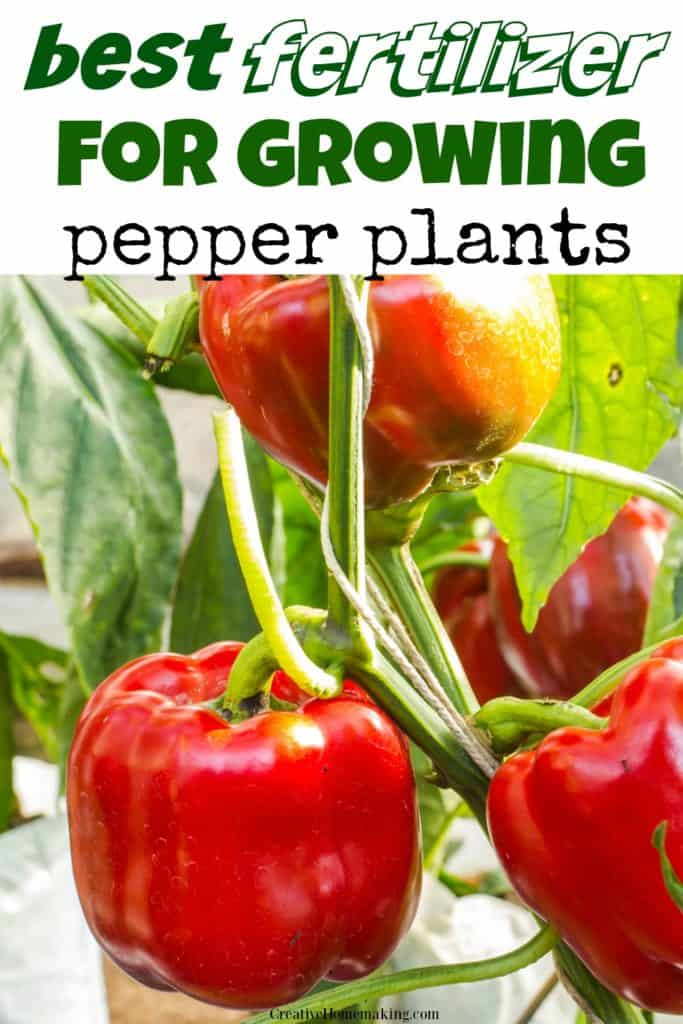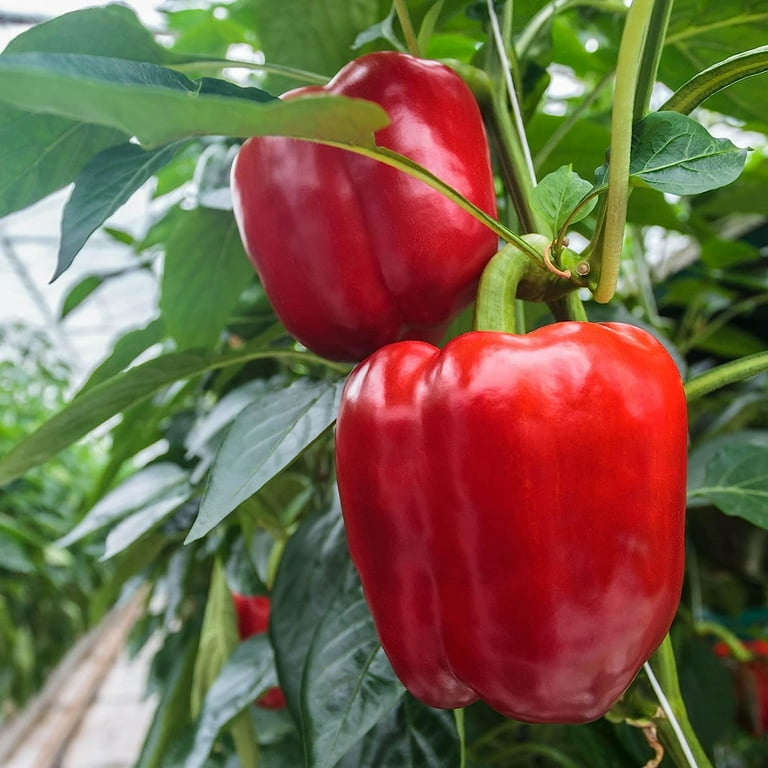Best Fertilizers for Peppers: Maximize Plant Health and Yield
Best Fertilizers for Peppers: Maximize Plant Health and Yield
Blog Article
Exactly How Fertilizers Play an Important Function in Growing Plentiful and healthy Pepper Crops
Plant foods serve as the backbone of successful pepper farming, offering a calculated strategy to nourishing the dirt and fostering ideal plant growth. The complex dancing between crucial nutrients and the pepper plants' physiological processes highlights the pivotal function that fertilizers play in making sure a plentiful harvest.
Value of Nutrient-Rich Plant Foods
The application of nutrient-rich plant foods plays a critical role in enhancing the efficiency and high quality of pepper plants in contemporary agricultural practices. Phosphorus, potassium, and nitrogen are main nutrients that are essential for the development and growth of pepper plants.
Insufficient levels of these nutrients can result in stunted growth, minimized returns, and vulnerability to diseases (best fertilizers for peppers). Nutrient-rich fertilizers offer a targeted remedy to make sure that pepper plants obtain the necessary elements for optimal growth and productivity. In addition, these plant foods help improve dirt fertility in time, developing a lasting atmosphere for long-lasting pepper growing
Enhancing Plant Development and Development
To maximize plant development and development in pepper crops, strategic application of nutrient-rich fertilizers is vital. Fertilizers play a crucial function in improving the total health and wellness and efficiency of pepper plants by offering them with crucial nutrients that might be lacking in the soil. Phosphorus, potassium, and nitrogen are main macronutrients required in large amounts by peppers for durable development. Nitrogen help in leafed eco-friendly growth and overall plant vigor, phosphorus sustains root growth and blossom formation, while potassium adds to condition resistance and fruit top quality.
Along with these macronutrients, trace elements such as iron, magnesium, and zinc are additionally essential for the proper functioning of various plant processes. Iron, for example, is needed for chlorophyll production, which is essential for photosynthesis and total plant development. Zinc plays a crucial duty in enzyme task and hormone synthesis, influencing plant development and development at a mobile level. Magnesium is important for the development of chlorophyll and total energy transfer within the plant.

Boosting Condition Resistance With Plant Foods
By purposefully including targeted fertilizers, farmers can strengthen the disease resistance of pepper plants, ensuring optimum plant health and wellness and productivity. Fertilizers consisting of crucial nutrients like nitrogen, phosphorus, and potassium play an important duty in reinforcing pepper plants' immune systems, making them extra resilient to different illness. Nitrogen, for example, help in the production of healthy proteins that are vital for plant defense devices. Phosphorus adds to root growth, allowing plants to better take in nutrients and water, therefore boosting their ability to repel conditions. Potassium controls processes that enhance total plant wellness, making peppers much more robust against virus.

Making The Most Of Pepper Yield Through Fertilization
Using a balanced fertilizing method is vital to attaining maximum pepper return and ensuring optimum plant performance. By giving peppers with the right nutrients at the correct time, farmers can considerably improve their yield potential. Potassium, phosphorus, and nitrogen are essential aspects for pepper growth, with nitrogen aiding in fallen leave and stem growth, phosphorus sustaining origin growth and flower development, and potassium advertising overall plant health and wellness.
To make best use of pepper yield, it is important to perform soil examinations to identify existing vitamins and mineral degrees and determine any shortages that require to be attended to. Based upon these results, farmers can develop a tailored fertilization plan that satisfies the particular demands of their pepper plants. Furthermore, appropriate fertilization methods such as split applications throughout the expanding period can guarantee continual nutrition schedule for the plants.

Lasting Plant Food Practices for Peppers
In thinking about lasting plant food techniques for peppers, it is crucial to focus on lasting dirt health and ecological stewardship in combination with optimizing plant performance. One crucial strategy is the usage of natural plant foods such as garden compost, manure, or cover plants, which not only supply crucial nutrients to the peppers yet additionally contribute to soil framework and microbial task. best fertilizers for peppers.
Furthermore, precision agriculture strategies, such as soil testing and targeted nutrient applications, can assist enhance plant food use, making sure that peppers get the nutrients they need without excess overflow into rivers. This not only profits the setting by minimizing pollution click over here but likewise saves expenses for farmers by reducing waste. By taking on lasting fertilizer methods, pepper cultivators can protect the health and wellness great site of their crops, dirt, and surrounding ecological communities for future generations.
Verdict
Finally, fertilizers are vital for growing healthy and balanced and bountiful pepper crops. best fertilizers for peppers. They supply necessary nutrients for plant development and growth, boost condition resistance, and take full advantage of return. By carrying out sustainable fertilizer practices, farmers can make certain the long-term wellness of their pepper plants and add to a more environmentally-friendly and effective farming system
The intricate dancing in between necessary nutrients and the pepper plants' physical processes emphasizes the essential duty that fertilizers play in guaranteeing an abundant harvest.To optimize plant development and development in pepper crops, calculated application of nutrient-rich fertilizers is vital. Fertilizers play an essential duty in improving the general wellness and productivity of pepper plants by providing them with vital nutrients that may be doing not have in the dirt.By strategically incorporating targeted plant foods, farmers can boost the disease resistance of pepper plants, ensuring ideal plant health and performance. Fertilizers having important nutrients like potassium, nitrogen, and phosphorus play a critical function in strengthening pepper plants' immune systems, making them a lot more resilient to various diseases.
Report this page